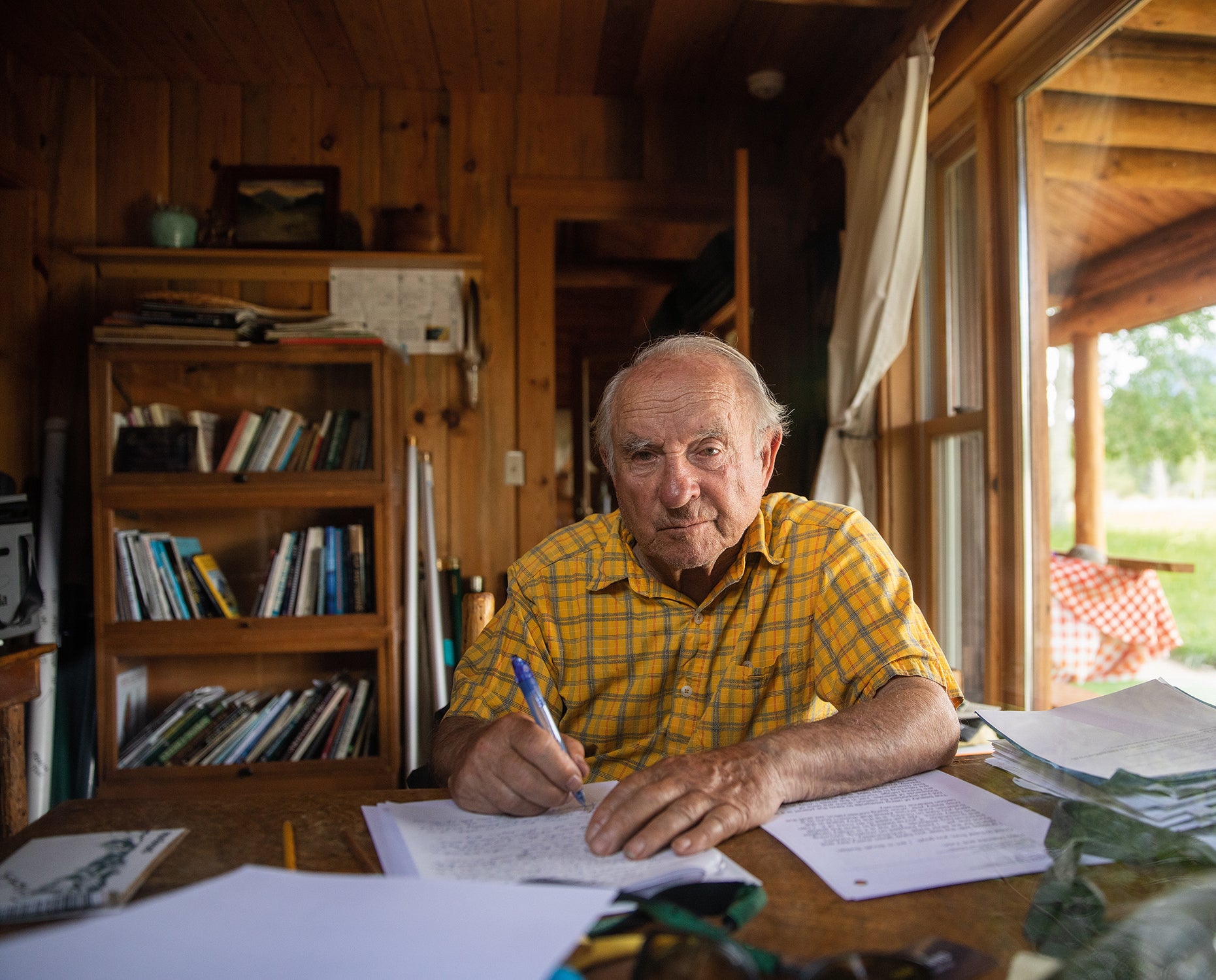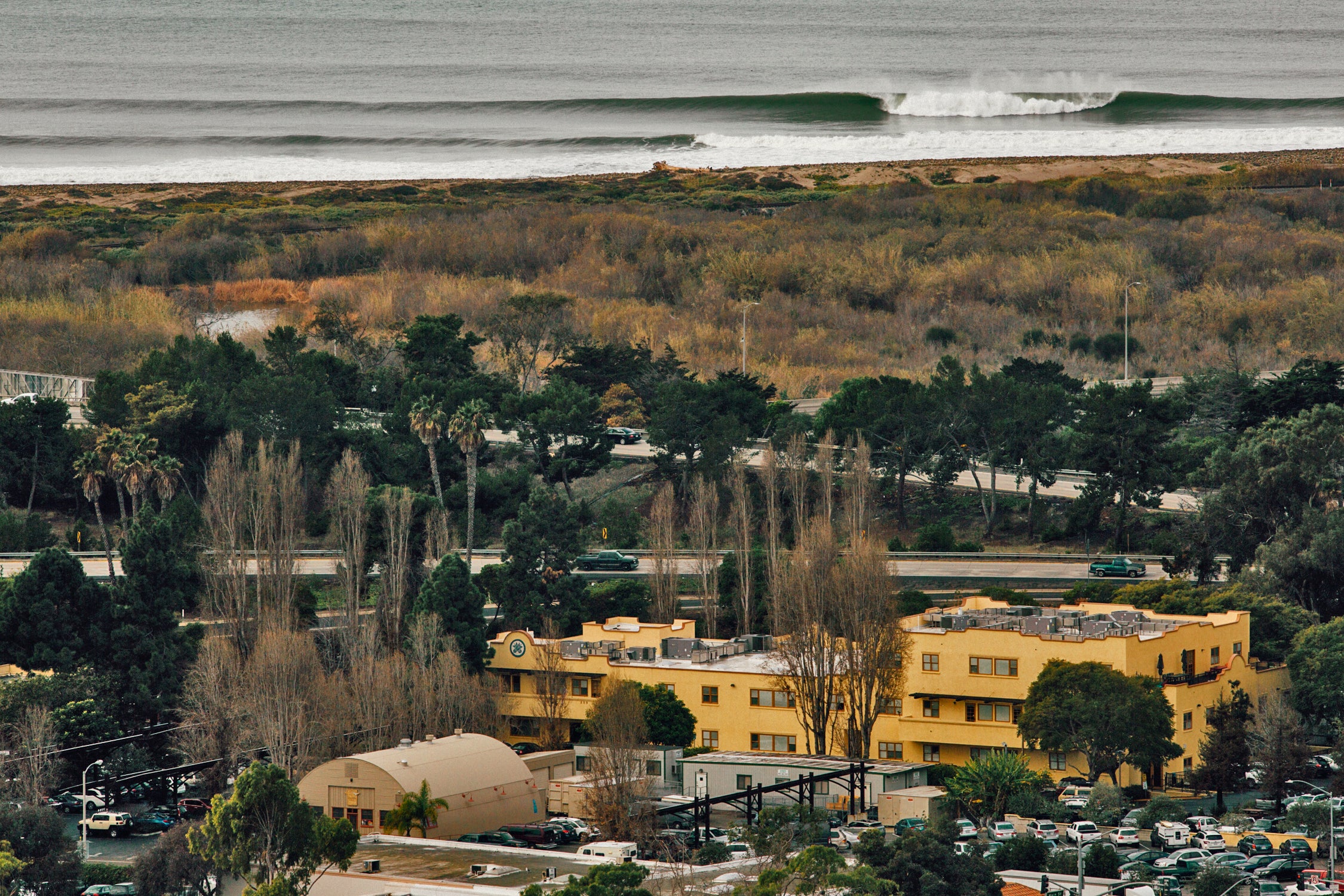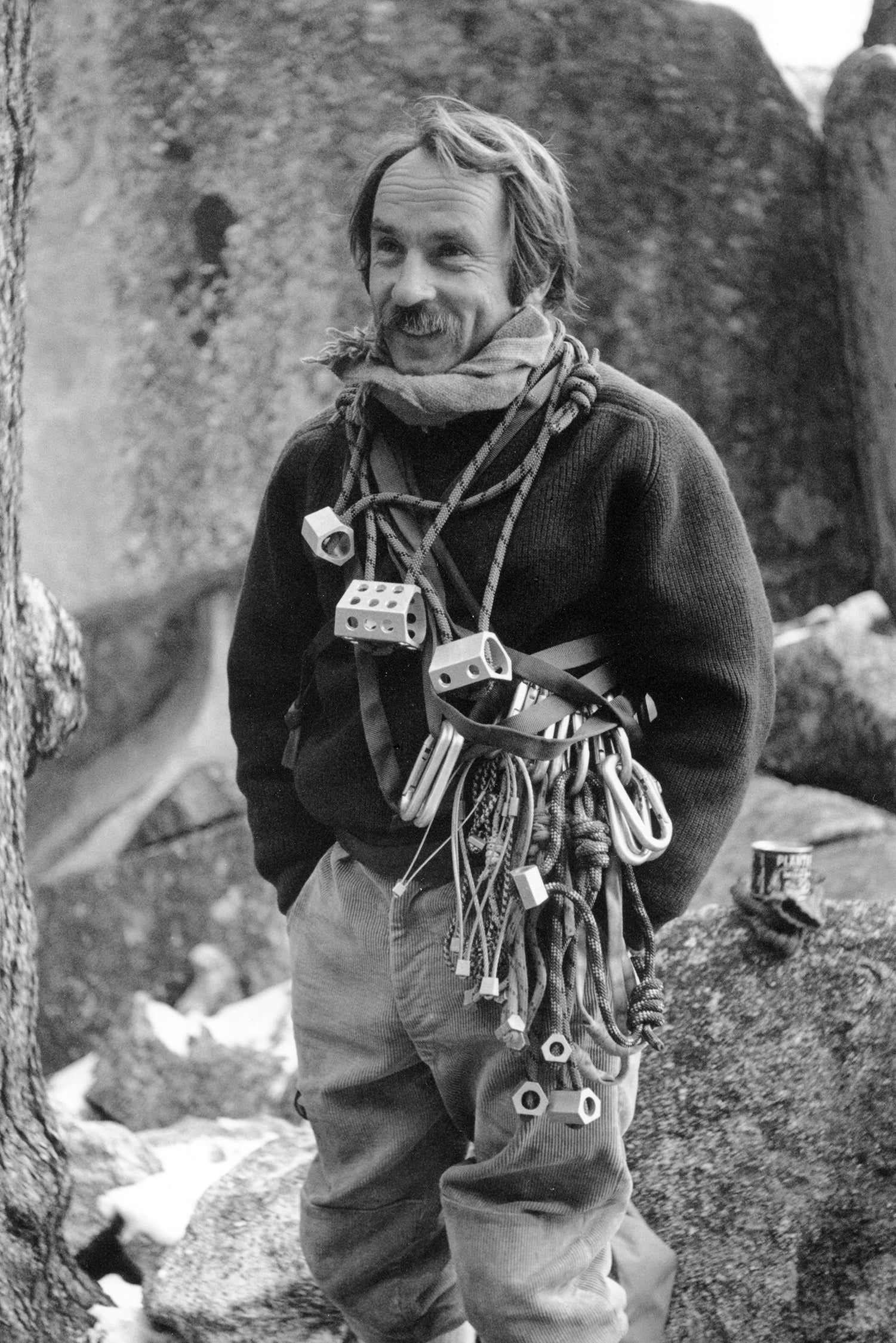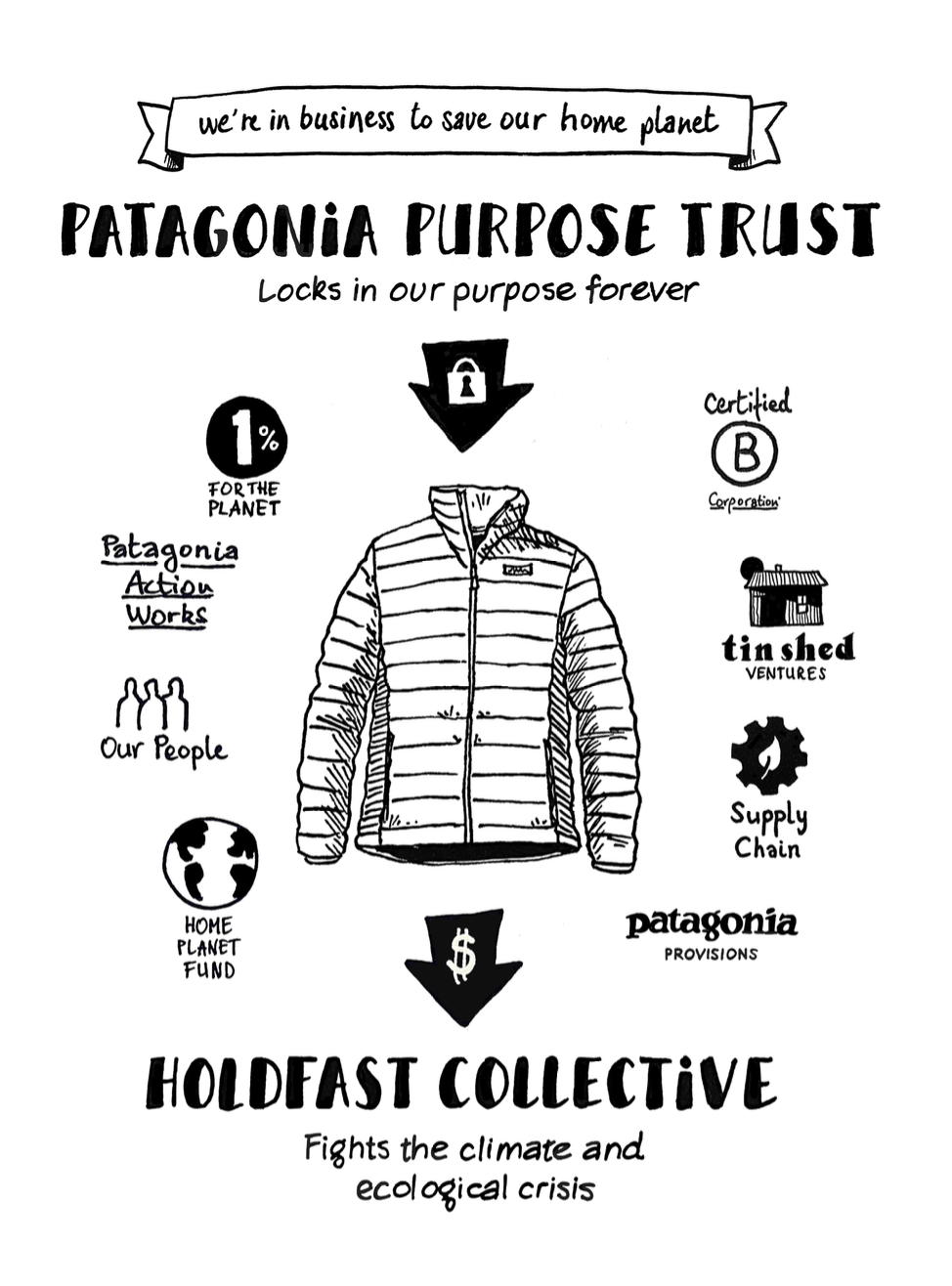Will Patagonia founder’s plan to give away brand to fight climate crisis be enough?
The company has always been on the cutting-edge of sustainability, observers tell Josh Marcus. But how much can even the most sustainable corporations really do to stop the climate crisis?


Your support helps us to tell the story
From reproductive rights to climate change to Big Tech, The Independent is on the ground when the story is developing. Whether it's investigating the financials of Elon Musk's pro-Trump PAC or producing our latest documentary, 'The A Word', which shines a light on the American women fighting for reproductive rights, we know how important it is to parse out the facts from the messaging.
At such a critical moment in US history, we need reporters on the ground. Your donation allows us to keep sending journalists to speak to both sides of the story.
The Independent is trusted by Americans across the entire political spectrum. And unlike many other quality news outlets, we choose not to lock Americans out of our reporting and analysis with paywalls. We believe quality journalism should be available to everyone, paid for by those who can afford it.
Your support makes all the difference.In 2011, the outdoor clothing brand Patagonia ran what might be the most iconic sweater advertisement of all time. It took out a full page in the New York Times during the Black Friday season, urging customers, “Don’t Buy This Jacket.”
“We ask you to buy less and to reflect before you spend a dime on this jacket or anything else,” the ad read. “Don’t buy what you don’t need,” it continued, noting it took 135 litres of water and 20 pounds of CO2 to manufacture each unit.
The message was tantamount to heresy in the retail world, but nothing new for the Ventura, California-based retailer, which has always been on the cutting edge of sustainability, a place where one experiences the competing tensions of social and financial good more than anywhere else in the business world. The ad, despite its message, was a boon for the company’s sales.
Now, Patagonia is pushing this mindset, in all its challenges and innovations, to its furthest logical limits. On Wednesday, company founder Yvon Chouinard and his family, who control the business, announced they would be giving 100 per cent of their shares in Patagonia, worth an estimated $3bn, over to a trust and nonprofit dedicated to fighting the climate crisis.
“Hopefully this will influence a new form of capitalism that doesn’t end up with a few rich people and a bunch of poor people,” Mr. Chouinard, 83, told the New York Times. “We are going to give away the maximum amount of money to people who are actively working on saving this planet.”
The move not only funnels the company’s roughly $100m a year in profit towards environmentalism, but locks in an ownership structure the family says is designed to ensure the company continues running in a sustainable way, with commitments like going carbon neutral and only using renewable or recycled materials by 2025.
In August, the Chouinards gave their 2 per cent voting stock in the company over to an entity called the Patagonia Purpose Trust, overseen by the family and close advisers, while the other 98 per cent went to a 501(c)(4) nonprofit called the Holdfast Collective dedicated to climate causes. The corporate tax structure means the collective can spend directly on political advocacy and lobby to influence policy.
When Leslie Davis Burns, a professor emerita at Oregon State University who taught global sourcing and corporate social responsibility, heard the news, she said she cracked a big smile

“I just went, this is so Patagonia,” she said. “As an activist company, they have always pushed what can we do and how can we do it differently and be authentic in making a difference.”
Such activist companies are rare in the business world period, not to mention the fashion industry, which has an awful track record on issues like labour, waste, and pollution.
The company has always done things a little differently.
Yvon Chouinard, a self-described “reluctant businessman,” got his start as a wandering climber bum, blacksmithing rock climbing gear for use on the iconic walls of California’s Yosemite Valley in the 1950 and ‘60s. In 1970, after a climbing trip to Scotland, he started importing the rugged rugby shits he encountered there and selling them to climbers. In 1972 Patagonia was born.
Even in these early days, the company was willing to change its approach and forgo profits if it meant leaving less of a trace on the planet.
In the early 1970s, Mr Chouinard stopped selling stake-like pitons because they were scarring rock walls in climbing havens across the world, even though they made up 70 per cent of his hardware business at the time.
Later, as Patagonia continued to grow, it made a shift to more pricey organic cotton in the 1990s, after an internal audit showed intensively farmed cotton was damaging to the environment.
It embraced other environmentally focused solutions well ahead of competitors, too, such as starting to make its fleece from recycled soda bottles in 1993, an initiative that translated into 91 per cent of the company’s fabrics in Fall 2022 being made of recycled plastic.
The company also helps repair and resell customers’ used gear, and began giving 1 per cent of its sales to environmental causes in 1985, an effort that would, in 2002, directly inspire the 1% for the Planet pledge, which has since been embraced by a wide range of companies.
Still, as time went on, Mr Chouinard, who famously does not own a computer or cell phone, and would disappear into the backcountry for months on end, began to chafe in his place in the corporate retail world.
High-performance outdoor gear was designed to be worn and pushed to the limit for years, but was becoming a trendy mainstream fashion brand. Patagonia has even earned the nickname “Pata-Gucci” for its coveted, high-priced goods.

“We outgrew our loyal customer base and increasingly were selling to yuppies, posers, and wanna-bes,” he told Inc. in 1992. “These people don’t need this s*** to get in their Jeep Cherokees and drive to Connecticut for the weekend.”
Beyond the shifting market for Patagonia goods, the founder was struggling with what it meant to be a growing, successful company when that meant consuming ever more resources on a troubled planet.
“I’ve been a businessman for almost 50 years,” he wrote in his 2006 memoir Let My People Go Surfing. “It’s as difficult for me to say those words as it is for someone to admit being an alcoholic or a lawyer.”
The following decade, the company drilled down deeper into overt activism.
It helped, along with indigenous nations and environmentalists, lead a campaign to protect the planned Bear’s Ears National Monument in Utah from the Trump administration’s attempts to drastically reduce its size.
The company took unprecedented steps, from running its first ever TV ads to call out then-Interior Secretary Ryan Zinke in his home state of Montana, to suing the Trump administration in 2017. The company changed its homepage to a massive banner that read, “The President Stole Your Land.” It was a militant update to “Don’t Buy This Jacket.” (In 2021, the Biden administration restored and slightly expanded the monument.)
The following year, the company launched Patagonia Action Works, a page directing customers to local grassroots environmental action.
Despite having what multiple observers told The Independent was a “halo” around the brand, the company still has its critics and has made its own controversial decisions about social responsibility.
Patagonia, known for its fiery activism, spoke neither for nor against the 2021 Garment Worker Protection Act in California, establishing fair wages and improved conditions for clothing makers in the company’s home state, many of whom work not far from Ventura in clothing factories in Los Angeles.
Lyndra Grose, a California College of the Arts Professor, co-founded one of the first ecologically responsible clothing lines for the brand ESPRIT, another pioneering socially aware clothing brand, in 1990. She said in an email Patagonia is ushering in a “welcome conversation in an atmosphere of rampant sustainability claims and one that is long overdue,” but notes that the company’s carbon footprint keeps growing nonetheless.
According to Patagonia’s most recent emissions report, the company’s direct, or Scope 1, carbon emissions have grown on balance since 2018. Other, more indirect, categories of emissions only ticked down, the company said, “largely due to a decrease in our product inventory and the operational shutdowns due to COVID.”

Indeed, even with Wednesday’s announcement, the company noted in a press release it will keep reinvesting some money into its business. The company, despite the heroic gestures of its founder, is still a for-profit business, and for-profit businesses usually try to grow.
“Certainly profits put to the common good are profits well spent,” Ms Grose added. “We do need to keep asking questions about the nature of business, how the profits are made and what ecological and social impacts are incurred in making them.”
Though Patagonia has a long history of inspiring new best practices in the clothing industry and beyond, it’s unlikely many companies will repeat their most recent feat of directing most of their earnings towards activism.
“Public corporations have a much more difficult time with that,” Ms Burns, the OSU professor, said. “They have shareholders that are expecting growth. That’s the challenge when you have large corporations that have expectations around traditional business models that include growth.”
A few people can, however, though it’s doubtful they’d see eye-to-eye with the Patagonia founder.
Barre Seid, the electronics magnate and major Republican donor, gave away 100 per cent of his shares in his business empire, worth $1.6bn, in 2021 to a conservative political advocacy group headed by Leonard Leo. Mr Leo is the co-chair of the right-wing Federalist Society, a group that’s worked to remake the federal court system with conservative judges often hostile to liberal priorities aroud the environmental regulation.
Billionaire corporate philanthropy as a whole has come under scrutiny, whether the money comes from left-wingers like Mr Chouinard, arch-conservatives, or more centrist figures like Amazon’s Jeff Bezos. Critics argue that having a small group of stratospherically wealthy individuals steer charitable priorities is both un-democratic and can result in certain causes that align with their subjective priorities getting more attention than the most urgent issues.
“The impact of philanthropy doesn’t always correlate with the size of the giving,” Heather Grady, a vice president at Rockefeller Philanthropy Advisors, told Outside magazine. “Because it’s voluntary, funders can spend a lot of money that has virtually no impact — it’s not what’s needed but what they’re interested in.”
Sociologist Justin Farrell, author of the book Billionaire Wilderness, has shown that wealthy individuals in places like Wyoming and Montana have poured money into their select charitable causes, sometimes even Patagonia-like endeavours to protect land, while unintentionally gentrifying away affordable housing and making communities unaffordable to the poor.
At the end of the day, according to Tom CW Lin, a Temple University law professor and author of 2022’s The Capitalist and the Activist: Corporate Social Activism and the New Business of Change, Patagonia should be celebrated for what it’s trying to do, while also serving as an example of what a corporation ultimately can’t do on its own.
“It’s really a commendable capstone to a pretty impressive business career by Yvon Choinard,” Mr Lin told The Independent.
“Three billion dollars is an incredibly large sum of money,” he added, “but in the context of a challenge like climate change, it’s really a drop in the ocean. On an issue like climate change, you really need nation states and coordinated action to move in a concerted fashion.”

Join our commenting forum
Join thought-provoking conversations, follow other Independent readers and see their replies
Comments